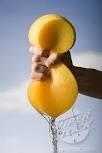 I believe one of the biggest health issues today is toxicity. The increased consumption of processed (basically unnatural) foods, genetically modified foods, prescription and recreational drugs, and alcohol, coupled with less exercise and increased stress means that people are developing and retaining more and more toxins. Whilst our body is generally very good at purging toxins, once it gets overloaded you may notice conditions like weight gain and skin breakouts right through to diseases like cancer.
I believe one of the biggest health issues today is toxicity. The increased consumption of processed (basically unnatural) foods, genetically modified foods, prescription and recreational drugs, and alcohol, coupled with less exercise and increased stress means that people are developing and retaining more and more toxins. Whilst our body is generally very good at purging toxins, once it gets overloaded you may notice conditions like weight gain and skin breakouts right through to diseases like cancer.
The main saviours of a toxic system are organs like the liver, kidneys, spleen and our skin. This high-performing team will do the job if you let it and detoxify your body. The trick is, this can only happen if your body is purging toxins faster than you take them in, that is, a net loss of toxins on a daily basis. Ideally we would all be better off toxin-free but one would imagine this scenario to be virtually impossible. So how do we do it?
The net toxic loss I mention essentially then means two steps – stop putting toxins in and purging the old toxins out. As I said, your body is good at getting rid of this waste but is assisted greatly by eating real organic foods, drinking plenty of water (daily at least 1.5 litres) and exercising regularly. I also recommend being more aware of your portions not just from a weight control perspective, but to simply go easier on your digestive organs giving them the space to do their thing. Similarly with the timing and speed of meals. Eating late and ramming food down your throat must be tougher on your digestive system. It may also be worth considering a specific liver/kidney cleansing diet(s) like the type espoused by Dr Sandra Cabot.
This leaves us with simply putting less toxins in. Essentially, toxins can come in through what we ingest, through our skin, and through our bodily orifices. It’s not enough to eat well some of the time if you consume a lot of processed food. A fantastic naturopath I used to see called it “caveman food”. If a caveman could access it, then it’s okay for all of us. We have become so far removed from what real food is we should be ashamed. For example, I have been informed that the “apparently” beautiful salmon that is farmed in my home state of Tasmania (which has such a clean/green image) has a naturally white flesh. Yet, when you buy it at the supermarket it is a pink colour which I’m told is due to a food dye! Why do intelligent beings mess with such an amazing food in the name of aesthetics? I just don’t get it. We must return to caveman food.
The even more hidden danger is over other parts of our body. I have seen children in parts of Asia swim or bath in water that most of us wouldn’t put our dog in. They may not have another option, but many of us do. We need to be aware that water carrying all types of germs can enter through our eyes, ears, mouth, nose, genitals and anus. Some pathogens can penetrate our skin as well. Have you ever bleached your hair, washed with shampoo, used deodorant, etc.? chances are you have fed your body heavy metals, carcinogens and a host of other molecules that it doesn’t recognise, or know how to process. That’s the issue, our de-tox team only knows how to deal with naturally occurring molecules. Anything foreign typically gets stored in the liver and in fat cells away from our organs so they are protected.
Be the caveman, not just with your diet but with what you put on your skin and hair. Be aware of what you immerse yourself in. Ask your healthcare professional what’s in any prescriptions you are given and ask for alternatives where you can that are more natural. Avoid radiation where possible also. Drink fresh water and investigate chelates (bind and remove heavy metals). EXERCISE! This is not just for your heart and weight control. Exercise draws toxins away from your core where your organs are and transports them out to your extremities. From there, the magic of sweat helps take them out of your body whilst doubling as a cooling aid. It’s a brilliant machine your body, just give it the best environment you can!
